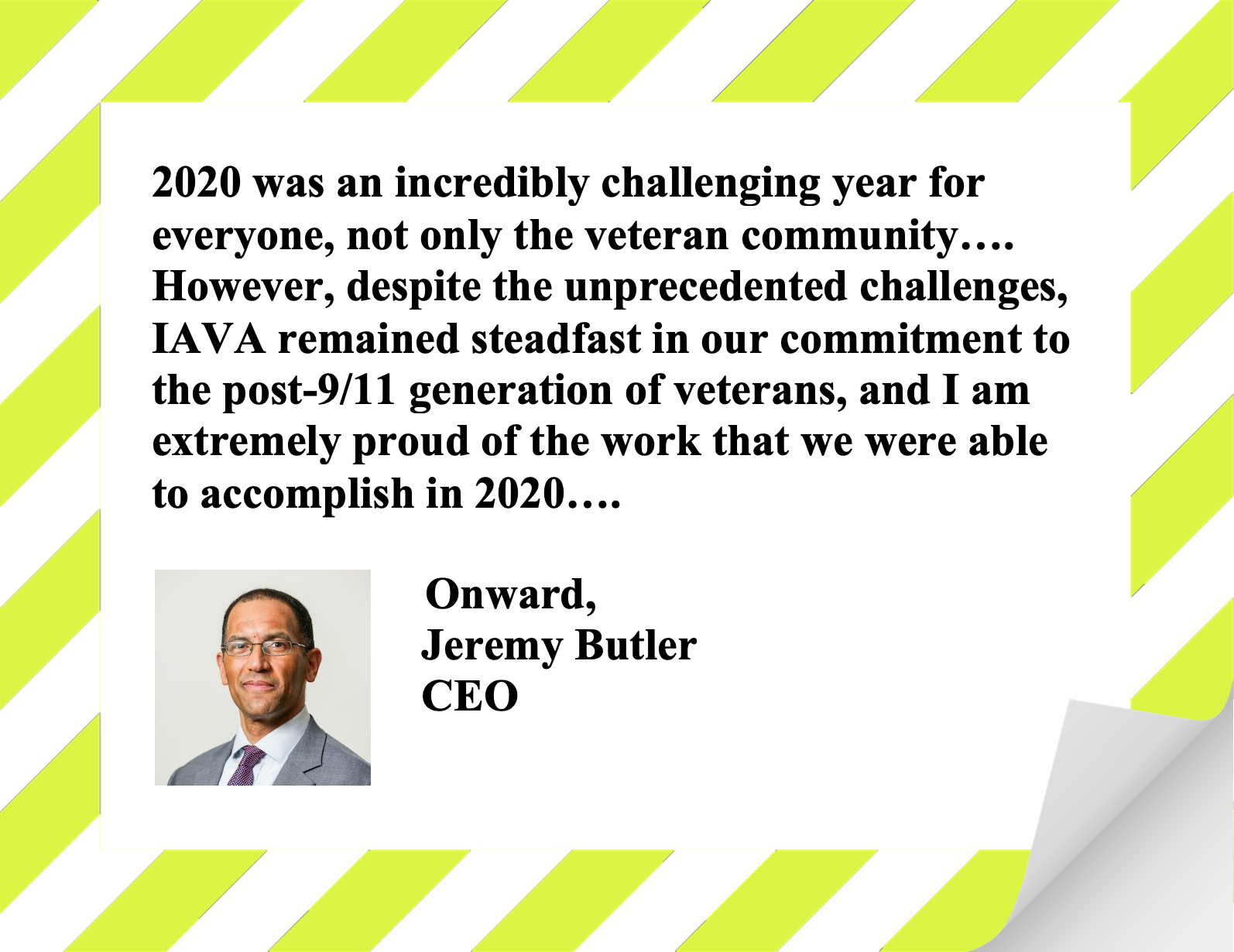IAVA's Policy Agenda for the 117th Congress
Defend and Expand Veterans Education Opportunities
Continue to Defend and Expand Veterans Education Opportunities
2008 was a landmark year for the post-9/11 generation. After years of tireless advocacy by IAVA and others, the Post-9/11 GI Bill was passed into law. With it, millions of veterans and their dependents had the doors to higher education opened for them. After deploying for years to Iraq, Afghanistan, and other conflict areas, Congress and the American people agreed that these warriors had earned the right to a degree.
In IAVA’s latest member survey, 75% of IAVA members reported having used, currently using, or transferring their Post-9/11 GI Bill benefit. And 87% agree the Post-9/11 GI Bill is important to military recruitment and 87% believe it is extremely or very important to transition to civilian life.
Since its inception, the Post-9/11 GI Bill has faced threats of funding cuts and abuse, which is why IAVA continues to #DefendTheGIBill. However, it has also seen unprecedented expansion. In 2017, IAVA worked with VSO partners to pass the Harry W. Colmery Veterans Educational Assistance Act, which included numerous expansions for the GI Bill, including elimination of the 15-year time limit to use the benefit.
We must continue to hold the line in defending these essential, earned benefits that are a cost of war.
Ensure the Success of Veterans on Campus
Ensure the Success of Veterans on Campus
Veterans are proven to be more productive and have higher retention rates once hired into a career, and ensuring they have the appropriate training and degrees is paramount to this success.
This successful transition to the civilian workforce often begins on a college campus. In fact, according to Student Veterans of America and the Institute for Veterans and Military Families, 2.9 million post-9/11 veterans have entered higher education since transitioning out of the military. This means that ensuring veterans are supported and successful on campus is of utmost important to the long-term success of each veteran.
Veterans bring with them a wide array of lived experiences and unique strengths that broaden college campus’ diversity. However, ensuring that veterans feel welcomed on campus continues to be a major player in attracting these talented individuals. In IAVA’s member survey, the majority of student veterans identified a veteran-friendly environment as a top reason for choosing their school. By investing in programs on campus, schools can both support their current student body and attract the interest of more veterans and their families.
IAVA's Recommendations
- Schools should commit to becoming a veteran-friendly campus by supporting veterans groups and providing support for non-traditional students on campus
- Train faculty and staff on veterans issues understanding that veterans often have different needs and strengths as nontraditional students
- Ensure resources are available to connect veterans with trusted education counseling services that help prospective student veterans with test preparation and admissions counseling
IAVA's Policy Priorities
Select a topic from the list below to learn about IAVA’s policy recommendations for the 117th Congress.

